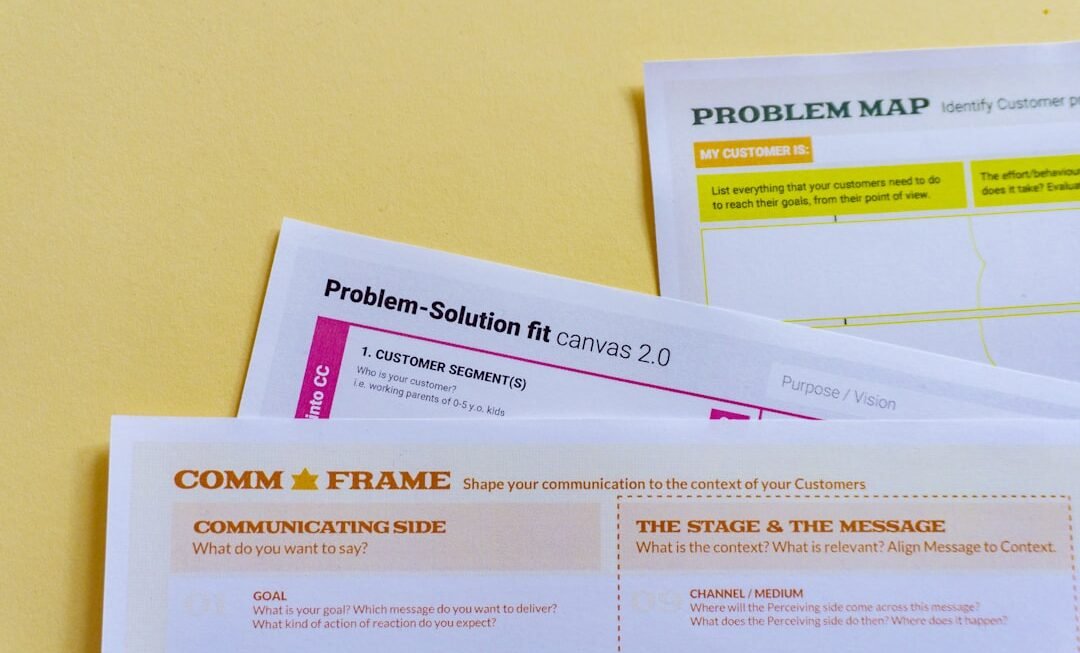The advent of artificial intelligence (AI) has revolutionized numerous sectors, and customer relationship management (CRM) is no exception. AI-driven CRM systems leverage advanced algorithms and machine learning techniques to enhance the way businesses interact with their customers. These systems are designed to analyze vast amounts of data, providing insights that were previously unattainable through traditional CRM methods.
By integrating AI capabilities, organizations can streamline their processes, improve customer engagement, and ultimately drive sales growth. AI-driven CRM systems are not merely an upgrade to existing technologies; they represent a paradigm shift in how businesses approach customer relationships. Traditional CRM systems often rely on manual data entry and basic analytics, which can lead to inefficiencies and missed opportunities.
In contrast, AI-powered solutions automate data collection and analysis, enabling real-time insights that empower sales and marketing teams to make informed decisions. This transformation is particularly crucial in today’s fast-paced business environment, where customer expectations are continually evolving, and competition is fierce.
Key Takeaways
- AI-driven CRM systems use artificial intelligence to enhance customer relationship management and improve sales and marketing processes.
- AI plays a crucial role in integrating sales and marketing efforts by analyzing data, identifying trends, and automating tasks.
- The benefits of AI-driven CRM systems for sales and marketing include improved lead generation, personalized customer experiences, and more accurate sales forecasting.
- AI enhances customer data management in CRM systems by analyzing and organizing large volumes of data to provide valuable insights for sales and marketing strategies.
- Leveraging AI for personalized marketing campaigns allows businesses to deliver targeted and relevant content to customers, increasing engagement and conversion rates.
The Role of AI in Sales and Marketing Integration
The integration of AI into sales and marketing processes is a game-changer for organizations seeking to enhance their operational efficiency. AI serves as a bridge between these two critical functions, facilitating seamless communication and collaboration. By analyzing customer data from various touchpoints, AI can identify patterns and trends that inform both sales strategies and marketing campaigns.
This holistic view allows teams to align their efforts more effectively, ensuring that marketing initiatives resonate with potential customers at the right time and through the right channels. Moreover, AI enhances the ability of sales and marketing teams to work together by providing shared insights that drive decision-making. For instance, predictive analytics can forecast which leads are most likely to convert based on historical data, allowing marketing teams to tailor their campaigns accordingly.
This synergy not only improves the efficiency of resource allocation but also enhances the overall customer experience. When sales and marketing are aligned through AI-driven insights, organizations can create more cohesive strategies that lead to higher conversion rates and increased customer loyalty.
Benefits of AI-Driven CRM Systems for Sales and Marketing
The benefits of implementing AI-driven CRM systems are manifold, particularly for sales and marketing teams. One of the most significant advantages is the ability to automate routine tasks, freeing up valuable time for professionals to focus on strategic initiatives. For example, AI can handle data entry, lead scoring, and even initial customer interactions through chatbots.
This automation not only increases productivity but also reduces the likelihood of human error, ensuring that data remains accurate and up-to-date. Additionally, AI-driven CRM systems provide enhanced analytics capabilities that allow organizations to gain deeper insights into customer behavior. By analyzing data from various sources—such as social media interactions, website visits, and purchase history—AI can identify trends that inform marketing strategies.
This level of insight enables businesses to segment their audiences more effectively, tailoring messages that resonate with specific demographics or customer personas. As a result, marketing campaigns become more targeted and effective, leading to higher engagement rates and improved return on investment (ROI).
How AI Enhances Customer Data Management in CRM Systems
Effective customer data management is at the heart of any successful CRM strategy, and AI plays a pivotal role in enhancing this aspect. Traditional CRM systems often struggle with data silos, where information is fragmented across different departments or platforms. AI-driven solutions address this challenge by integrating data from multiple sources into a unified platform.
This consolidation allows for a comprehensive view of each customer, enabling businesses to understand their preferences and behaviors more holistically. Furthermore, AI enhances data quality through advanced algorithms that can identify inconsistencies or inaccuracies in customer information. For instance, machine learning models can detect duplicate entries or outdated contact details, prompting users to update their records accordingly.
This proactive approach to data management ensures that sales and marketing teams are working with the most accurate information available. Additionally, AI can facilitate real-time updates to customer profiles as new data becomes available, ensuring that organizations remain agile in responding to changing customer needs.
Leveraging AI for Personalized Marketing Campaigns
Personalization has become a cornerstone of effective marketing strategies, and AI is instrumental in achieving this goal. By analyzing customer data, AI can identify individual preferences and behaviors, allowing marketers to craft highly personalized messages that resonate with their target audience. For example, an e-commerce platform might use AI algorithms to recommend products based on a customer’s previous purchases or browsing history.
This level of personalization not only enhances the customer experience but also drives higher conversion rates. Moreover, AI enables marketers to automate the delivery of personalized content across various channels. Through predictive analytics, businesses can determine the optimal time to send emails or push notifications based on when customers are most likely to engage.
This targeted approach ensures that marketing messages reach customers when they are most receptive, increasing the likelihood of interaction. As a result, organizations can foster stronger relationships with their customers by delivering relevant content that meets their needs at every stage of the buyer’s journey.
Using AI to Predict Customer Behavior and Preferences
Understanding customer behavior is crucial for businesses aiming to stay ahead of the competition, and AI provides powerful tools for making accurate predictions in this area. By analyzing historical data and identifying patterns, AI algorithms can forecast future behaviors with remarkable precision. For instance, a retail company might use AI to predict which products are likely to be popular during a specific season based on past sales trends and external factors such as economic conditions or social media sentiment.
In addition to predicting purchasing behavior, AI can also help organizations anticipate customer preferences regarding communication channels and content types. By analyzing engagement metrics from previous campaigns, businesses can determine whether customers prefer email newsletters or social media updates. This insight allows marketers to tailor their outreach strategies accordingly, ensuring that they connect with customers in ways that resonate most effectively.
The ability to predict behavior not only enhances marketing efforts but also informs product development and inventory management strategies.
Integrating AI-Driven CRM Systems with Sales Automation Tools
The integration of AI-driven CRM systems with sales automation tools creates a powerful ecosystem that enhances efficiency and effectiveness across the sales process. Sales automation tools streamline repetitive tasks such as lead tracking, follow-up scheduling, and reporting. When combined with AI capabilities, these tools become even more potent by providing actionable insights that guide sales representatives in their interactions with prospects.
For example, an integrated system might analyze past interactions with leads to suggest the best times for follow-ups or recommend specific talking points based on the lead’s interests. This level of support empowers sales teams to engage more meaningfully with prospects, increasing the likelihood of conversion. Additionally, by automating administrative tasks, sales representatives can dedicate more time to building relationships with potential customers rather than getting bogged down in paperwork.
The Impact of AI on Lead Scoring and Qualification
Lead scoring is a critical component of any successful sales strategy, as it helps prioritize prospects based on their likelihood to convert. Traditional lead scoring methods often rely on subjective criteria or basic demographic information; however, AI transforms this process by incorporating a wealth of data points into the scoring model. By analyzing historical conversion rates alongside behavioral data—such as website interactions or email engagement—AI can assign scores that reflect a lead’s true potential.
This advanced lead scoring approach allows sales teams to focus their efforts on high-potential leads while minimizing time spent on less promising prospects. For instance, an AI-driven system might identify leads who have engaged with multiple pieces of content or have shown interest in specific products as being more likely to convert. By prioritizing these leads for follow-up, organizations can optimize their sales processes and improve overall conversion rates.
AI-Powered Sales Forecasting and Pipeline Management
Accurate sales forecasting is essential for effective business planning and resource allocation, and AI significantly enhances this capability. Traditional forecasting methods often rely on historical sales data alone; however, AI incorporates a broader range of variables—such as market trends, economic indicators, and even social media sentiment—into its predictive models. This comprehensive approach allows organizations to generate more accurate forecasts that reflect current market conditions.
In addition to improving forecasting accuracy, AI also streamlines pipeline management by providing real-time insights into deal progression. Sales managers can leverage AI-driven analytics to identify bottlenecks in the pipeline or assess the health of individual deals based on historical performance metrics. This level of visibility enables proactive decision-making and allows teams to address potential issues before they escalate into lost opportunities.
Overcoming Challenges in Implementing AI-Driven CRM Systems
While the benefits of AI-driven CRM systems are substantial, organizations may encounter challenges during implementation. One significant hurdle is the integration of existing systems with new AI technologies. Many businesses rely on legacy systems that may not be compatible with modern AI solutions, necessitating careful planning and investment in infrastructure upgrades.
Another challenge lies in ensuring data quality and consistency across platforms. For AI algorithms to function effectively, they require clean and accurate data; however, many organizations struggle with data silos or outdated information. To overcome this obstacle, businesses must prioritize data governance initiatives that establish clear protocols for data management and ensure that all teams adhere to best practices.
Best Practices for Maximizing the Value of AI in Sales and Marketing Integration
To fully leverage the potential of AI in sales and marketing integration, organizations should adopt several best practices. First and foremost is fostering a culture of collaboration between sales and marketing teams. By encouraging open communication and shared goals, businesses can ensure that both functions work together seamlessly toward common objectives.
Additionally, investing in ongoing training for employees is crucial for maximizing the value of AI-driven CRM systems. As technology continues to evolve rapidly, equipping teams with the skills needed to navigate these changes will empower them to utilize AI tools effectively. Regular training sessions can help employees stay informed about new features or capabilities within the CRM system.
Finally, organizations should continuously monitor performance metrics related to their AI initiatives. By analyzing key performance indicators (KPIs) such as conversion rates or customer engagement levels, businesses can assess the effectiveness of their strategies and make data-driven adjustments as needed. This iterative approach ensures that organizations remain agile in responding to changing market dynamics while maximizing the value derived from their investment in AI technologies.












